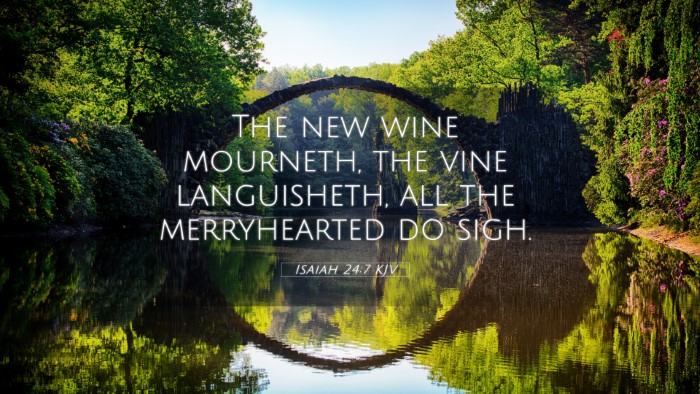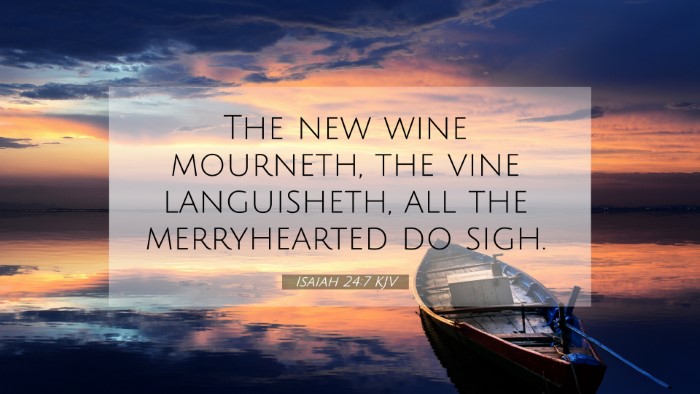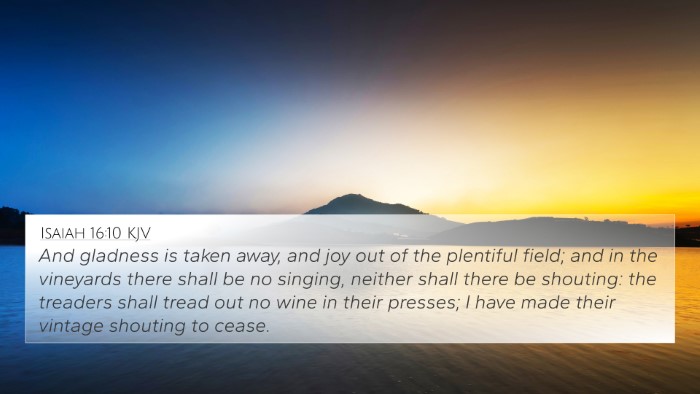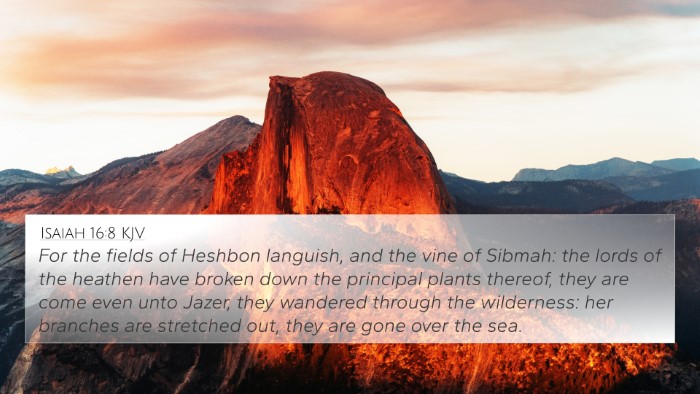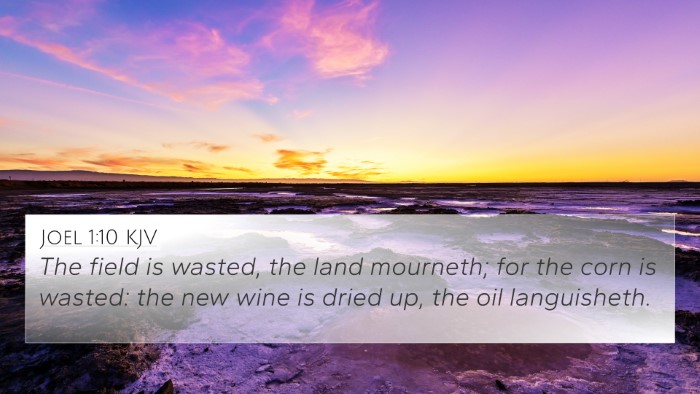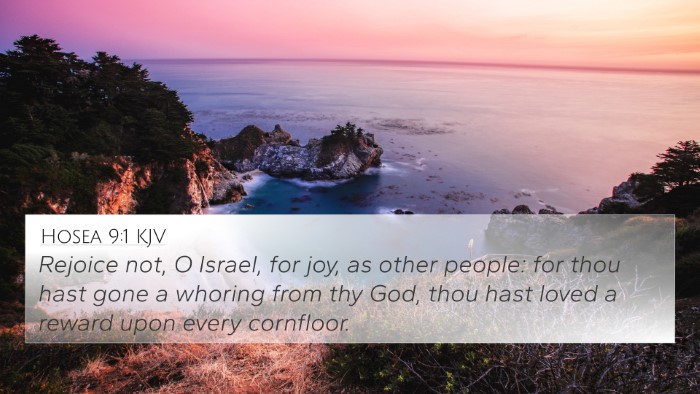Understanding Isaiah 24:7
Isaiah 24:7 states: "The new wine mourns, the vine languishes, and all the merry-hearted do sigh." This verse belongs to a larger context wherein the prophet Isaiah speaks about the desolation and judgment that would come upon the earth due to the people's sins. Various public domain commentaries provide in-depth insights into this verse, illustrating its profound meanings and connections with other Biblical texts.
Summary of Insights
This verse symbolizes not only the literal mourning of wine and vineyards but also reflects a broader emotional and spiritual desolation affecting society as a result of divine judgment. The following points are significant in understanding its full context and meaning:
- Spiritual Emptiness: Matthew Henry comments on how the joy represented by wine symbolizes happiness which is now turned to mourning due to the calamities that the Lord has allowed to happen.
- Social Distress: Albert Barnes connects this verse to the overall suffering of the inhabitants of the earth, highlighting the loss of joy and merriment as a consequence of sin.
- Judgment and Consequence: Adam Clarke notes that the lack of wine and the sighing of the merry-hearted signify a divine judgment that brings despair upon the land.
Thematic Connections
Isaiah 24:7 can be thematically analyzed in relation to other biblical verses. Here are some cross-referenced themes and connections:
Cross-References
- Joel 1:10: "The field is wasted, the land mourns; for the grain is ruined, the new wine is dried up, and the oil fails." This verse parallels Isaiah in depicting the effects of judgment on agricultural produce, symbolizing overall societal loss.
- Isaiah 1:7: "Your country is desolate, your cities are burned with fire; strangers devour your land in your presence, and it is desolate, as overthrown by strangers." This highlights the desolation mentioned in Isaiah 24:7.
- Proverbs 25:20: "Like one who takes away a garment on a cold day, or like vinegar on soda, is one who sings songs to a heavy heart." Connecting emotional states shows the tragedy of lost joy which aligns with the essence of despair in Isaiah 24:7.
- Isaiah 5:11: "Woe to those who rise early in the morning, that they may follow intoxicating drink; who continue until night, till wine inflames them!" This creates a connection to the theme of wine and its significance in both joy and judgment.
- Lamentations 2:12: "They say to their mothers, 'Where is grain and wine?' As they faint like wounded men in the streets of the city, as their life is poured out in their mother's bosom." This depicts the mourning of plenty which resonates with the heartbreak in Isaiah.
- Matthew 9:17: "Nor do they put new wine into old wineskins, or else the wineskins break..." This metaphor enhances the understanding of how the new and the old represent change and the need for transformation, relevant to the spiritual context Isaiah provides.
- Revelation 16:19: "Now the great city was divided into three parts, and the cities of the nations fell. And great Babylon was remembered before God, to give her the cup of the wine of the fierceness of His wrath." This relates back to the themes of judgment and divine wrath that Isaiah discusses.
Emotional and Spiritual Reflection
Isaiah 24:7 compels readers to reflect on the emotional states caused by societal sin and divine judgment. The sorrow brought upon the joyous, harmonious state of being is an admonition to seek holiness and righteousness to sustain spiritual joy. This mourning signifies the urging of believers to engage in repentance and restoration of their relationship with God to prevent such societal desolations.
Tools for Further Study
For those interested in a deeper exploration of the themes and connections inside and outside of Isaiah 24:7, consider using:
- Bible Concordance: A useful tool to find specific verses and their meanings, enabling a study on connections between different scriptures.
- Bible Cross-Reference Guide: This helps identify other Bible verses that relate to themes in Isaiah 24:7, allowing for comparative Bible verse analysis.
- Cross-Reference Bible Study Methods: Employing note-taking strategies to catalog related verses can assist in discerning the larger Biblical narrative.
Conclusion
Isaiah 24:7 serves as a poignant reminder of the consequences of societal sin and the resulting sorrow wrought by divine judgment. The insights provided by various commentaries enrich our understanding of this verse and its connections to other scriptures. Through cross-referencing and thematic analysis, one can pursue deeper spiritual learnings and reflections.

